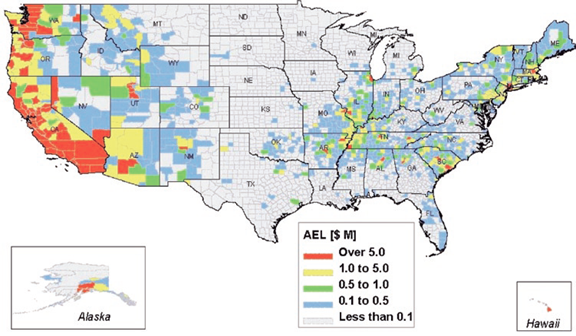The Texas Railroad Commission regulates oil and gas production activities in Texas. The Commission has the authority to issue and suspend permits for production companies and Texas oil and gas lawyers can file complaints with the Commission on behalf of landowners who believe they have been harmed by a well’s operations. Periodically, an energy company’s drilling and wastewater injection permit will be challenged by landowners on the grounds that a well has caused earthquakes, and the Commission conducts hearings to review the evidence of whether the permit should be revoked. The issue of whether injection wells cause earthquakes has come before the Commission several times over the past few years.
The Commission’s investigations have consistently determined that the earthquake swarm activity experienced in Oklahoma and north Texas over the past few years has not been linked with any specific oil and natural gas drilling activity, and until the seismic activity can be linked to a specific producer’s drilling activity, wells should remain open and operational. While scientists at the United States Geological Survey and other research institutions have opined that there is a link, Texas oil and gas regulators have indicated that oil and natural gas production should not be terminated until there is definitive proof of a correlation between drilling/wastewater activity and earthquake activity.
Some of the specific incidents and findings by the Texas Railroad Commission are:
- The Commission found no conclusive evidence linking the Venus, Texas quake that rattled Johnson County, Texas in May of 2015.
- The Commission report indicated that wastewater injection wells near northwest Fort Worth did not cause an earthquake cluster in that area in late 2014.
- The Commission 2015 hearings found no evidence correlating that a wastewater injection well owned and operated by EnerVest contributed to earthquake clusters in Reno, Texas and Azle, Texas in 2013 through 2014. A hearing involving wells owned by XTO Energy resulted in similar findings.

Map is reproduced from HAZUS® MH Estimated Annualized Earthquake Losses for the United States FEMA 366 / April 2008.
Energy Companies Defend Their Permits, Scientists Are No-Shows
For the most part, oil and gas producers have been able to keep their permits after demonstrating to the Commission how their wells are not the specific cause of these earthquake clusters. While a handful of studies exist that assert certain companies and wells are responsible for triggering the earthquake swarms, the scientists who author these reports rarely make an appearance at the Commission permit hearings to defend their research work, according to an article by WFAA 8 News. In addition, as Texas oil and gas attorneys are aware, the Texas Railroad Commission has never been an agency that is shy about their regulatory responsibilities. In my experience, they have never been any kind of a “rubber stamp” agency for oil companies. Thus, their investigations and their findings deserve consideration. If oil and gas production does result in earthquakes, then scientists will surely be able to develop evidence as to a causal connection and the Railroad Commission can create regulations to modify or eliminate the particular activities that cause earthquakes. I don’t represent oil companies, and never have. But keep in mind that the royalties paid by oil companies are important income to many thousands of folks. So let’s be sure of our facts before we start throwing accusations out.
 Texas Oil and Gas Attorney Blog
Texas Oil and Gas Attorney Blog

